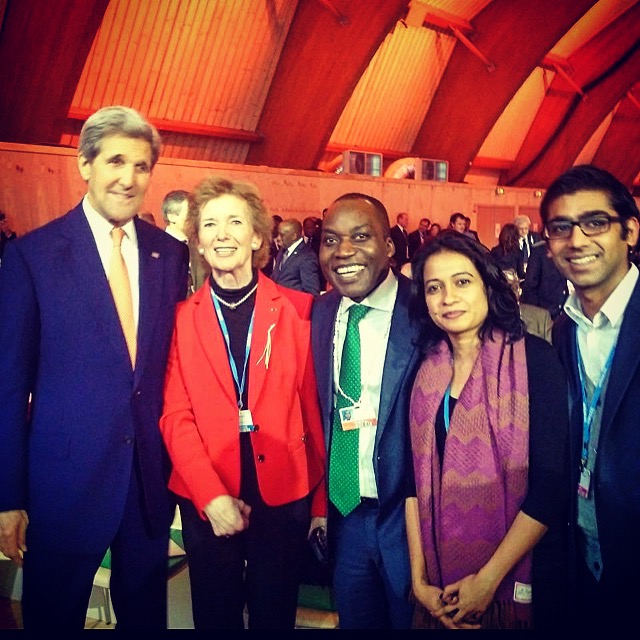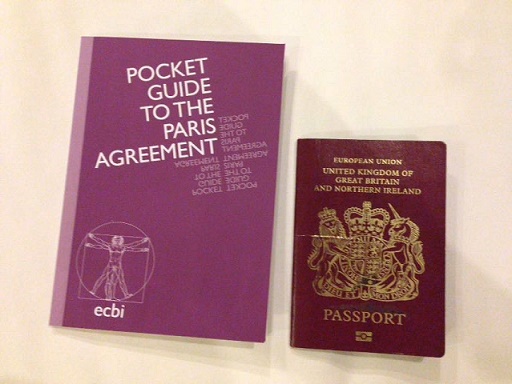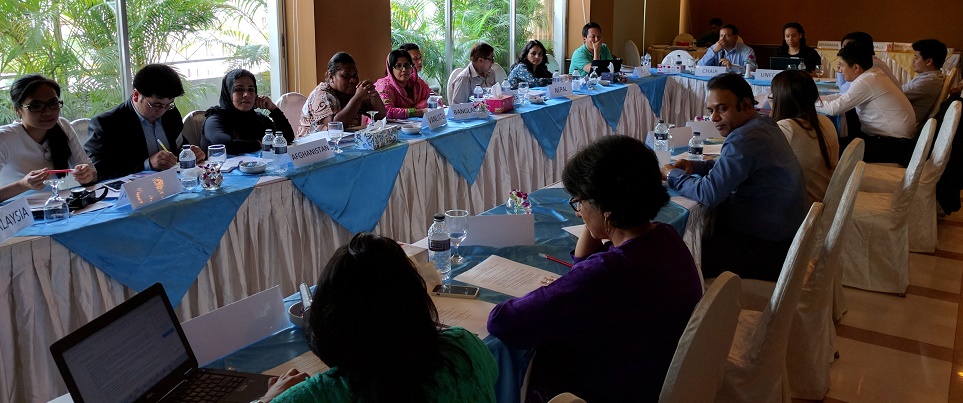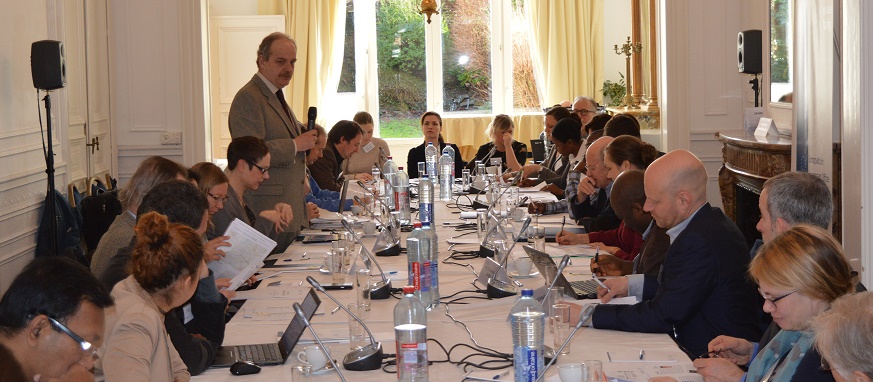11 December 2015

LRI lawyer Raj Bavishi (right) with clients/partners and the US Secretary of State
LRI lawyers are playing an important role as the Paris climate negotiations reach a critical point.
UK solicitor Raj Bavishi is on the Angolan delegation and represents the LDCs in a small group of legal and linguistic experts tasked by COP president Laurent Fabius with crafting and reviewing the wording of the agreement itself. The legal and linguistic group reviews draft text passed to it by the Presidency of the meeting for technical and legal conformity, but does not make any substantive changes. It also reviews translations of the text into the six official UN languages.
LRI volunteers are also working with individuals from numerous other delegations. In total LRI has so far received more than 70 legal enquiries from delegates to the talks. Some of these can be dealt with on-site, talking delegates through the issues at hand, but others need to be “farmed out” to LRI’s network of legal advisors in Europe, the US and Australia. The group is operating a “situation room” in London, staffed by lawyers who produce a daily update for clients and carry out initial research.
Some of these enquiries can be quite complicated, relating to the legal nature of loss and damage for example, while others relate to future domestic legislation that may be required to implement the Paris agreement.
Another LRI volunteer at COP21 is Caroline Dihl-Prolo, a lawyer from Brazil. Caroline studied environmental law in London and joined LRI in 2013 as an intern. She’s worked in LRI’s situation room, carrying out research and administration for the group, and has attended the last 3 COPs as a liaison officer. In Paris, Caroline is assisting Achala Abeysinghe, the legal and technical advisor to the LDC group in the talks, by attending informal meetings of nations to discuss specific issues in the text, and advising on drafting and interpretation.
“I think my advice is more useful when it comes to the very legal matters, like the preamble and how it will guide the agreement to come; entry into force, ratification, and issues related to the structure of the agreement,” Caroline says. “But of course I’m very keen on helping delegations understand what their options are in the form of the commitments and contributions under the agreement.”





